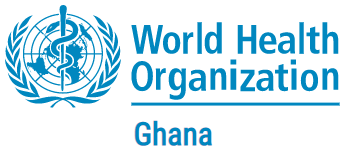The World Health Organization (WHO) and the Korea International Cooperation Agency (KOICA) Ghana have signed an agreement to pilot a new project that will strengthen ongoing efforts to protect against the dangers of Antimicrobial Resistance (AMR) in Ghana.
The new project titled - Partnership for Health Security in Ghana under the “Increasing Health Security Capacities through the Global Health Security Agenda (GHSA) Phase 2” by the Government of Korea is worth 100 000 US Dollars and will be implemented in the Northern region of Ghana.
The project seeks to optimize the use of antimicrobial medicines by providing practical guidance, capacity building and support to selected healthcare facilities in the northern region to implement antimicrobial stewardship (AMS) interventions in hospitals and laboratories. It will also see the development of AMS guidelines and training manual for Ghana
Speaking at the agreement signing ceremony, WHO Representative to Ghana, Prof Francis Kasolo underscored the global health and development threats of AMR and expressed gratitude to the Government of Korea for joining hands with WHO to support Ghana’s efforts towards addressing them.
“Antimicrobial resistance has emerged as a serious threat not only to humans but also to animals,” noted Prof Kasolo. “This partnership will generate important information necessary to develop drugs and inform communities about the threats of AMR and ultimately contribute to saving lives and livelihoods.”
On his part, the Ghana Country Director of KOICA, Donghyun Lee, expressed the pleasure of KOICA to partner with WHO at the national and subnational level on addressing the key public health priority of the Government of Ghana. “This initiative will strengthen healthcare systems and empower the local communities,” he stated. “This project is for the people of Ghana and allows dialogue between partners and stakeholders to achieve the solution we jointly imagine.”
AMR occurs when bacteria, viruses, fungi and parasites change over time and no longer respond to medicines making infections harder to treat and increasing the risk of disease spread, severe illness and death. As a result of drug resistance, antibiotics and other antimicrobial medicines become ineffective and infections become increasingly difficult or impossible to treat.
WHO has declared that AMR is one of the top 10 global public health threats facing humanity. This new project is expected to complement ongoing efforts aimed at addressing AMR and its associated dangers in Ghana.
The pilot initiative will be managed by WHO and implemented over 17 months from 02 November 2023 to 31 March 2025 by Ghana Health Service and Tamale Teaching Hospital in collaboration with the Ministry of Health, the United States Centers for Disease Control and other stakeholders.
Distributed by APO Group on behalf of World Health Organization (WHO), Ghana.
Latest Stories
-
NDC executives deny involvement in rogue anti-galamsey taskforce
20 minutes -
Bailiff jailed four years for forging judge’s signature
28 minutes -
Presidency launches gov’t accountability series to enhance transparency
1 hour -
2024 Election: Bawumia’s early concession undermined results collation – Inusah Fuseini
2 hours -
Judge orders Trump administration to stop immigration arrests without probable cause in Southern California
2 hours -
What Ghana Must Fix: ISSER’s GSDO 2024 report exposes key social gaps in housing, jobs, and governance
2 hours -
“I want to help with ideas” – Socrate Safo to creatives in government
3 hours -
Prof. Nana Ama Browne Klutse: Championing environmental sustainability and youth employment in Ghana
5 hours -
Ablekuma North rerun: ‘I was only there to de-escalate the situation’ – Mustapha Gbande
5 hours -
I was once a footballer – Socrate Safo reveals
5 hours -
See the blackout areas as ECG’s planned maintenance proceeds today
7 hours -
Democracy advocacy group condemns Ablekuma North violence
7 hours -
Club World Cup final: How Chelsea, PSG compare; who will win?
7 hours -
How hundreds of Irish babies came to be buried in a secret mass grave
7 hours -
Embrace rural postings to address shortage – Dr Apaak urges teachers
7 hours

